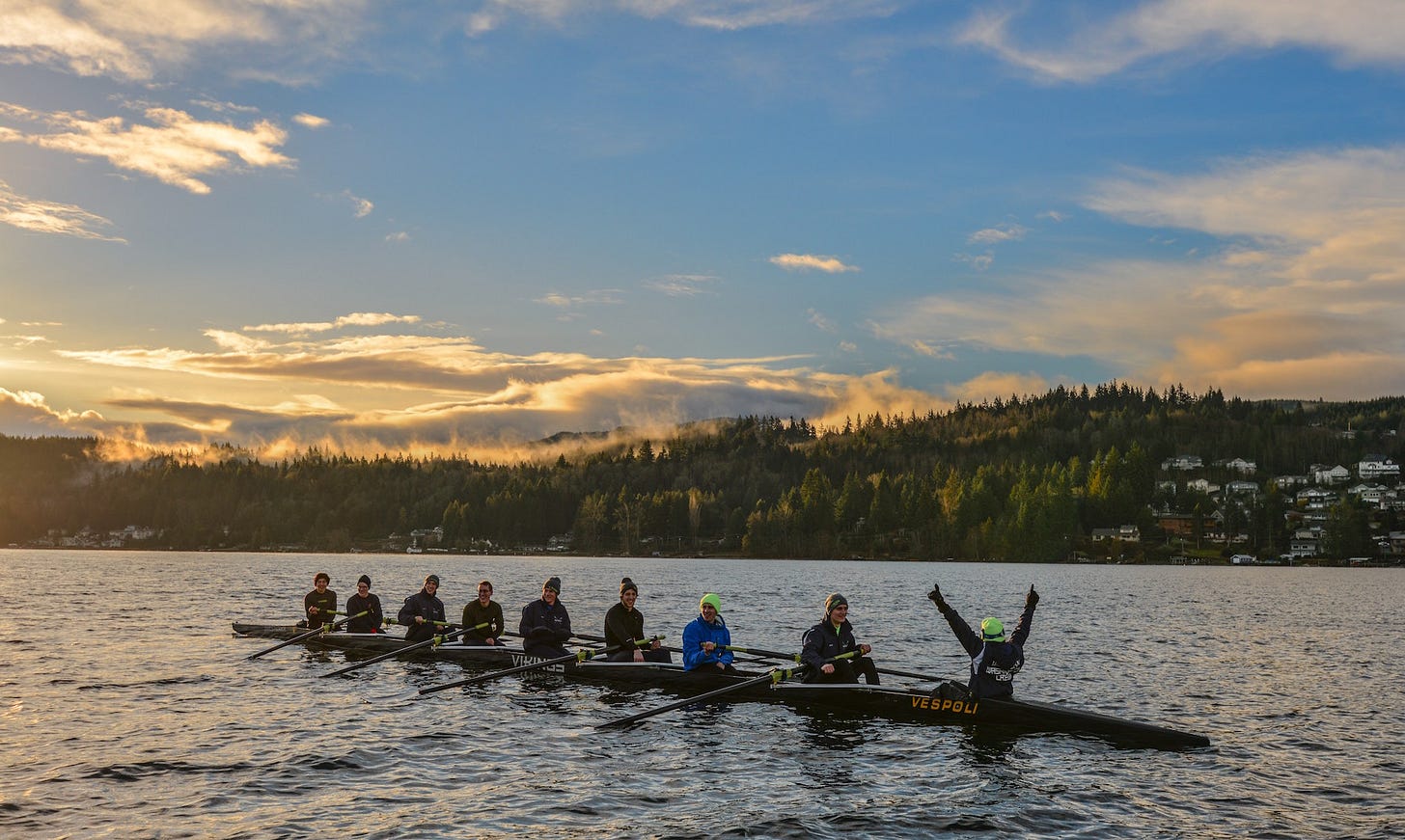Racing isn’t the hardest part of rowing for most people. “Make the training harder than the race” is a common phrase in our sport for a reason. Racing is demanding, tiring, and even exhausting, but it tends to have less of an impact overall than the weeks of training building up to that intense effort.
Of course, different formats of races are different. Having to do 2+ races in a single day, as is a common format in many regattas, is quite challenging. This is usually limited to 1km and 2km races at major events where there is a time trial or heats, a semifinal, and a final, or where rowers are racing in multiple boat classes in a single day. If you’re doing a single-shot dual race or your races are spread out over multiple days, then this is less work than goes into a typical race prep session of rowing training.
This is a central concept when it comes to strength training planning and in-season strength training for rowers. Simply going out and racing is not my primary concern. I coach some rowers who enjoy training and like to just go out and race for fun and their own intrinsic motivation. We’ll cut the session short immediately before the race or eliminate it if there’s lengthy travel involved, and then we’ll have an easier day or a day off immediately following the race. Training is essentially uninterrupted otherwise.
I also coach rowers who do several races within one block of training, as is common in the junior and collegiate spring season and for many masters in the summer and fall, or the training for a single race involves an intense prep phase in the several weeks or few months before racing (those focusing on CRASH-B or HOCR, for example). We typically increase training volume and/or intensity during this phase to prepare for racing, and overreach before tapering for the main event(s) of the season.
This training scenario requires more attention to recovery due to the increased effort of race prep. Again, it’s not just the actual racing of going out and doing a max effort for a given distance, but everything that goes into preparing to do that effort at your best or close-to-best performance. The impact of race prep increases even more when we add in selection tests, seat races, or training camps that are physically and mentally stressful along the way.
Most rowers can “just go race” without having to adjust their training much. Count this as your “high-intensity” training day in a zone system. If we want to perform well at the race and are going to train enough and hard enough to do so, then we need more of an adjustment on the strength training side to help this all work.





